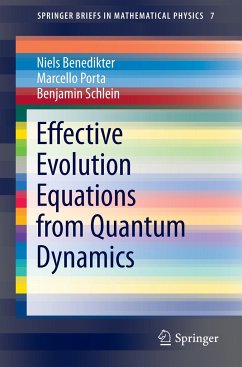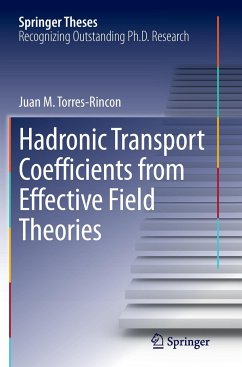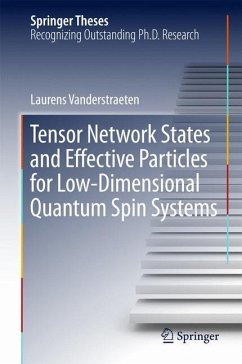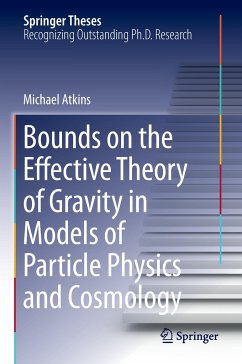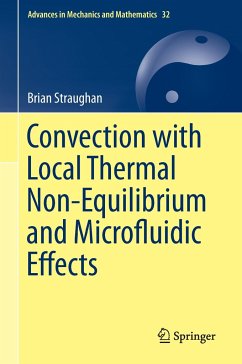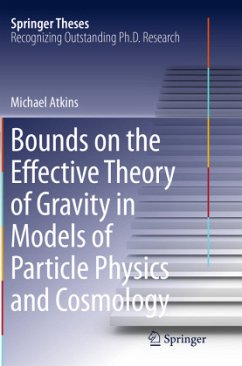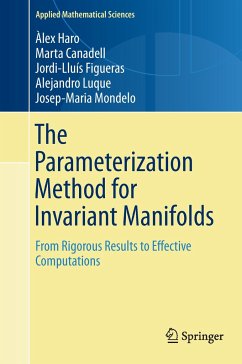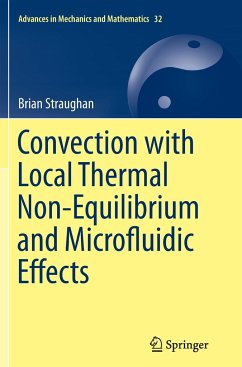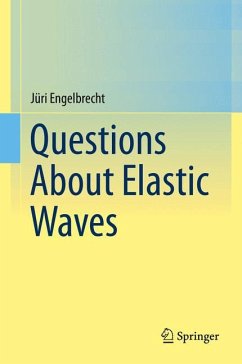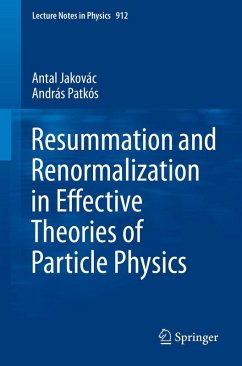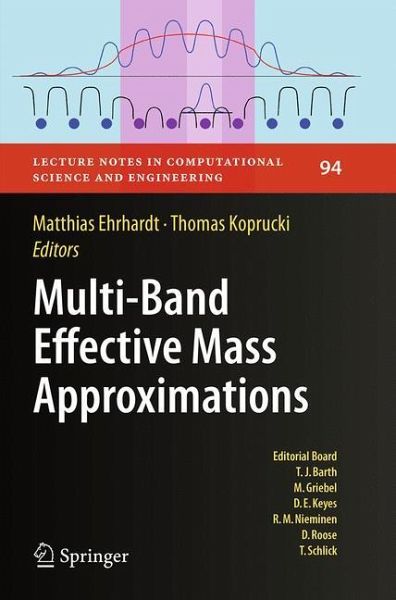
Multi-Band Effective Mass Approximations
Advanced Mathematical Models and Numerical Techniques
Herausgegeben: Ehrhardt, Matthias; Koprucki, Thomas
Versandkostenfrei!
Versandfertig in 6-10 Tagen
38,99 €
inkl. MwSt.

PAYBACK Punkte
19 °P sammeln!
This book addresses several mathematical models from the most relevant class of kp-Schrödinger systems. Both mathematical models and state-of-the-art numerical methods for adequately solving the arising systems of differential equations are presented. The operational principle of modern semiconductor nano structures, such as quantum wells, quantum wires or quantum dots, relies on quantum mechanical effects.The goal of numerical simulations using quantum mechanical models in the development of semiconductor nano structures is threefold: First they are needed for a deeper understanding of exper...
This book addresses several mathematical models from the most relevant class of kp-Schrödinger systems. Both mathematical models and state-of-the-art numerical methods for adequately solving the arising systems of differential equations are presented. The operational principle of modern semiconductor nano structures, such as quantum wells, quantum wires or quantum dots, relies on quantum mechanical effects.
The goal of numerical simulations using quantum mechanical models in the development of semiconductor nano structures is threefold: First they are needed for a deeper understanding of experimental data and of the operational principle. Secondly, they allow us to predict and optimize in advance the qualitative and quantitative properties of new devices in order to minimize the number of prototypes needed. Semiconductor nano structures are embedded as an active region in semiconductor devices. Thirdly and finally, the results of quantum mechanical simulations of semiconductor nano structures can be used with upscaling methods to deliver parameters needed in semi-classical models for semiconductor devices, such as quantum well lasers. This book covers in detail all these three aspects using a variety of illustrative examples.
Readers will gain detailed insights into the status of the multiband effective mass method for semiconductor nano structures. Both users of the kp method as well as advanced researchers who want to advance the kp method further will find helpful information on how to best work with this method and use it as a tool for characterizing the physical properties of semiconductor nano structures.
The book is primarily intended for graduate and Ph.D. students in applied mathematics, mathematical physics and theoretical physics, as well as all those working in quantum mechanical research or the semiconductor / opto-electronic industry who are interested in new mathematical aspects.
The goal of numerical simulations using quantum mechanical models in the development of semiconductor nano structures is threefold: First they are needed for a deeper understanding of experimental data and of the operational principle. Secondly, they allow us to predict and optimize in advance the qualitative and quantitative properties of new devices in order to minimize the number of prototypes needed. Semiconductor nano structures are embedded as an active region in semiconductor devices. Thirdly and finally, the results of quantum mechanical simulations of semiconductor nano structures can be used with upscaling methods to deliver parameters needed in semi-classical models for semiconductor devices, such as quantum well lasers. This book covers in detail all these three aspects using a variety of illustrative examples.
Readers will gain detailed insights into the status of the multiband effective mass method for semiconductor nano structures. Both users of the kp method as well as advanced researchers who want to advance the kp method further will find helpful information on how to best work with this method and use it as a tool for characterizing the physical properties of semiconductor nano structures.
The book is primarily intended for graduate and Ph.D. students in applied mathematics, mathematical physics and theoretical physics, as well as all those working in quantum mechanical research or the semiconductor / opto-electronic industry who are interested in new mathematical aspects.





